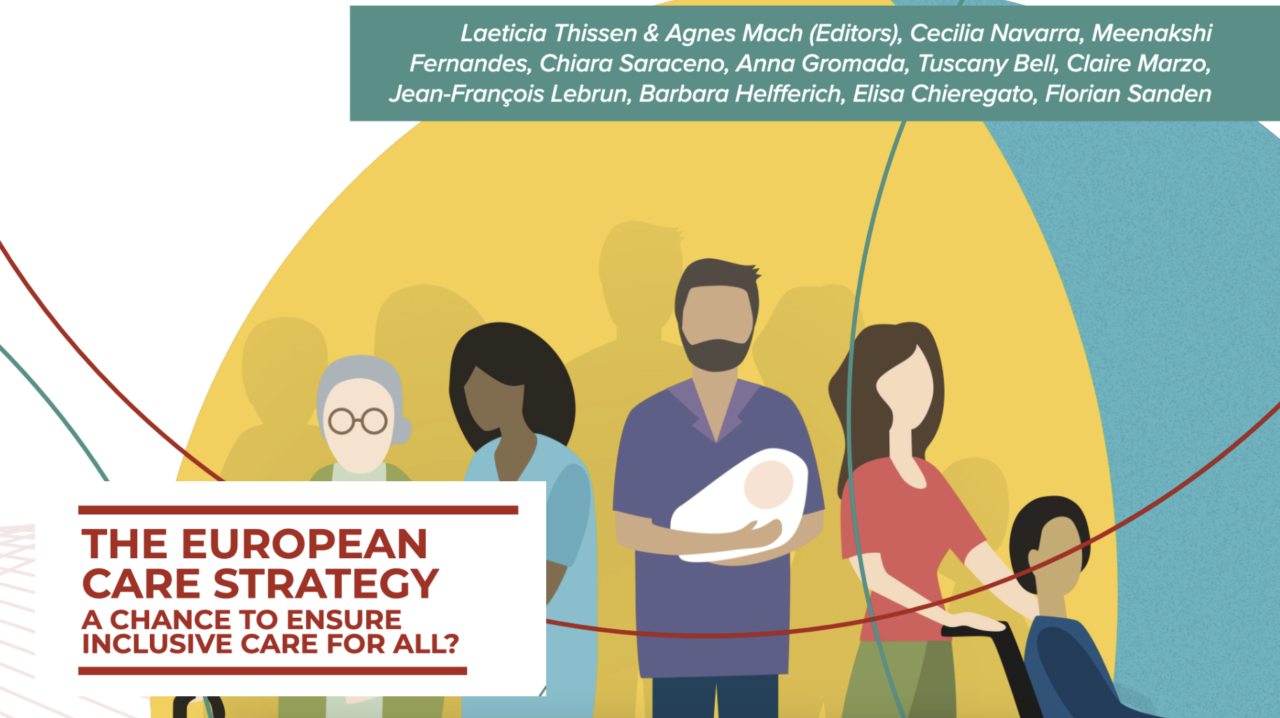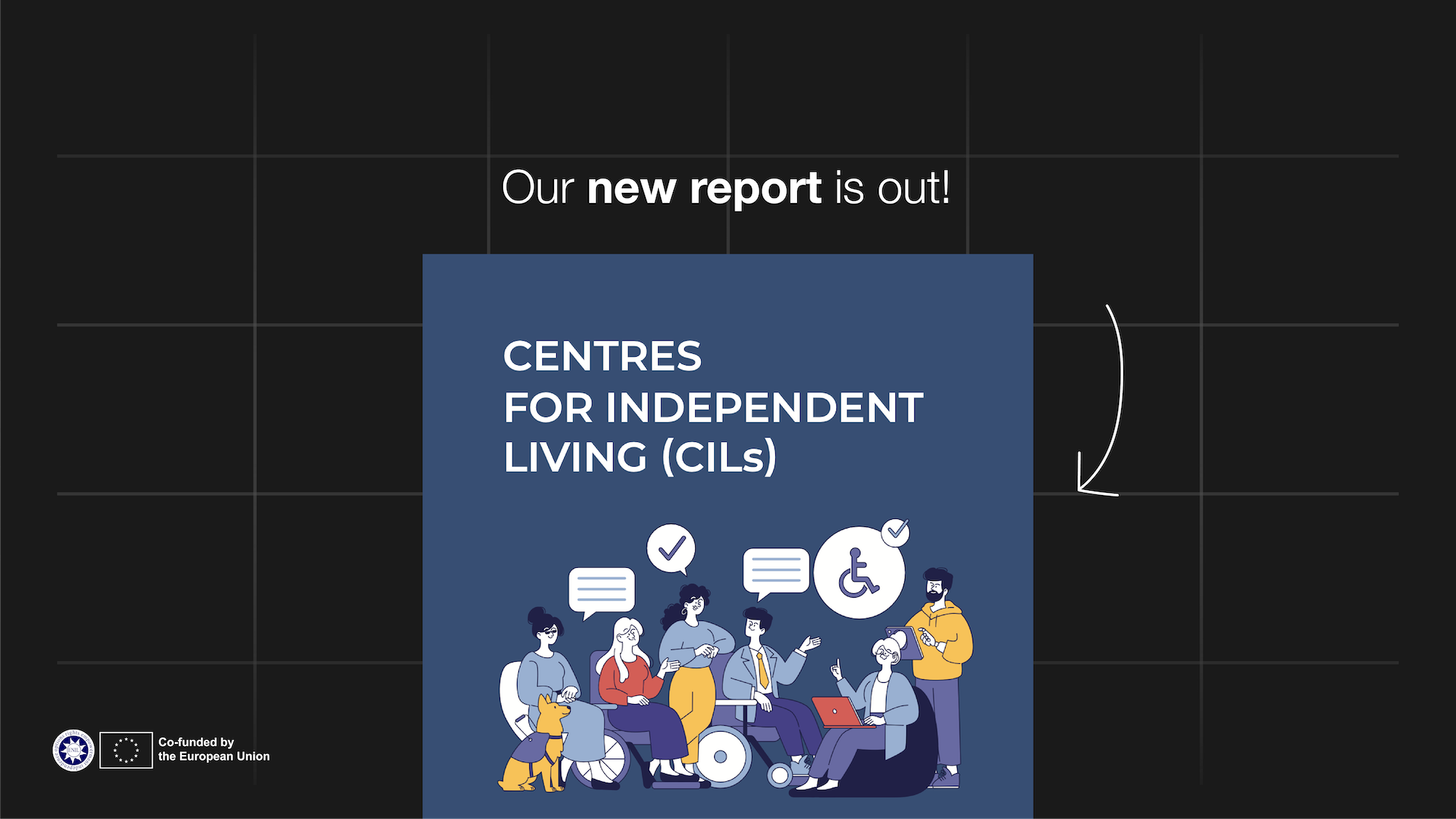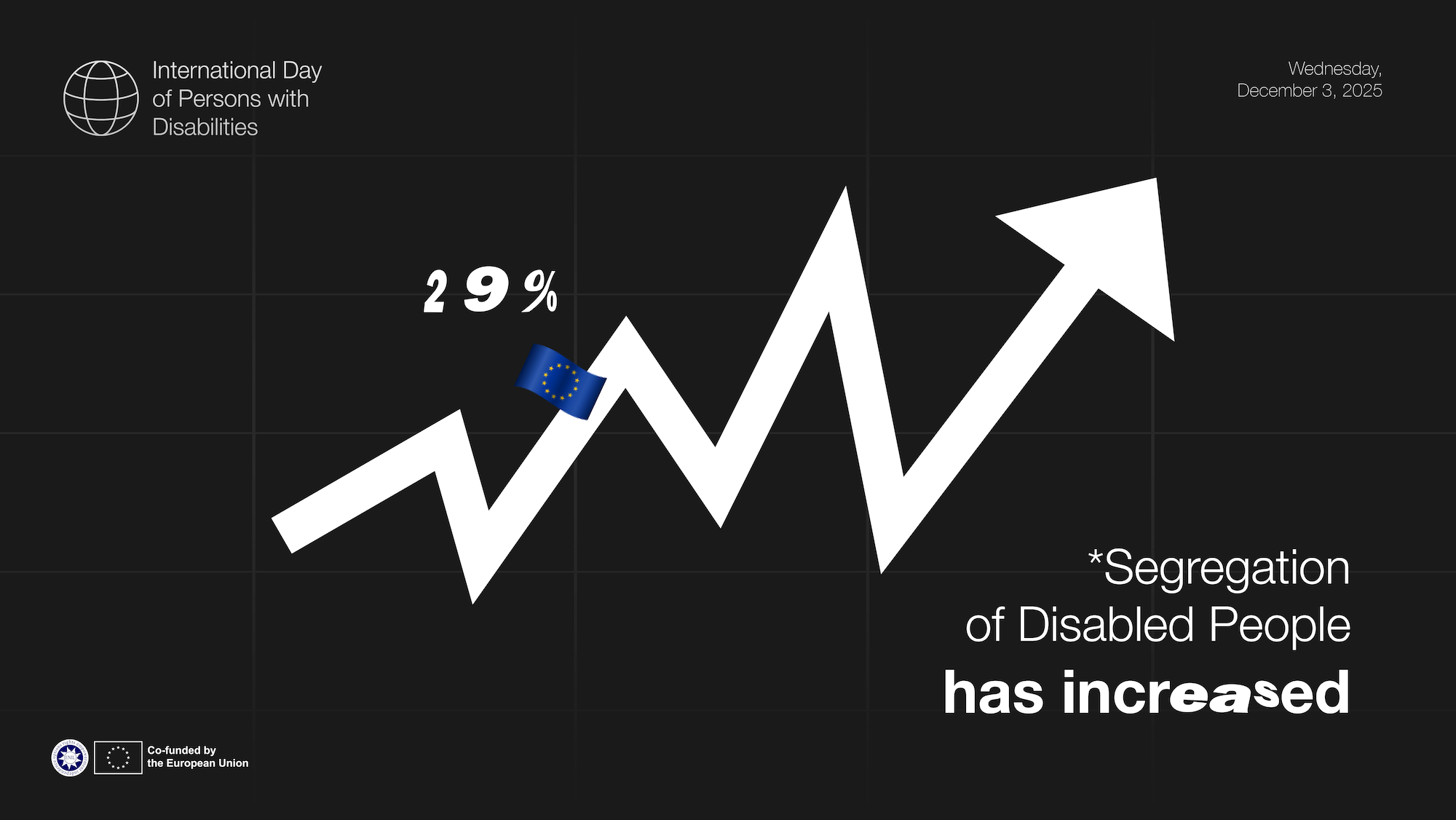Last October, the Foundation of European Progressive Studies (FEPS), the party foundation of the European social democrats, began working on a policy study on the Care Strategy. Policy Coordinator Florian Sanden was invited to contribute with a research article. The full policy study was published at the beginning of March.
The European Care Strategy is widely celebrated as being supportive of Disabled People. This is true, when it comes to the first part of the Care Strategy, which is the Council recommendation on early childhood education and care which insists on disabled children attending mainstream education on an equal level with non-disabled children. When it comes to the second part, the Council recommendation on long-term care this is wrong. It defines disability as a subtopic of long-term care and embraces institutions and group homes as legitimate support options. The argument that Disabled People need to be taken care of, serves until today as the reason we have to be institutionalised. In reality though it has always been about impeding disabled people living amongst normal society. Institutions were and are about segregation, not support. The contribution quotes evidence from a variety of original sources to demonstrate the segregationist and harmful nature of institutions. Many institutions were and are located in very rural areas or maintain built barriers to the outside world. Many things we take for granted, like personal freedom, privacy, the ability to pursue work or education are not possible for residents of institutions. Pursuing intimate relationships is often not possible either. Living in an institution can be very lonely. Violence or involuntary administration of medication are frequent occurrences. Institutionalisation can severely damage one’s health and cause further impairments. The adoption of the UNCRPD and General Comment No 5 committed state parties to deinstitutionalisation. Few State Parties are implementing deinstitutionalisation. The European Care Strategy might encourage countries to conduct disability policies which continue to rely on institutions. What we really need is an expansion of disability support services like personal assistance. Contrary to long term care, disability support aims to enable Disabled People to participate in all areas of life on an equal level with non-Disabled People.
The full contribution is available on the website of the Foundation for European Progressive Studies.



